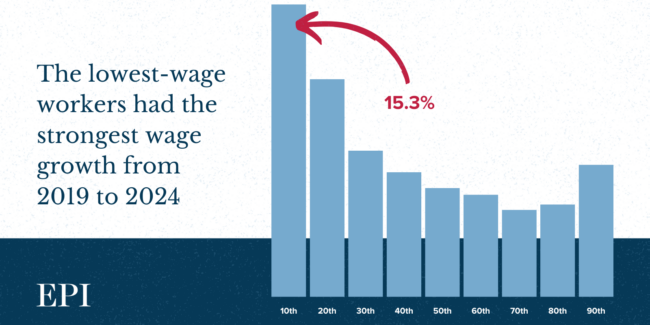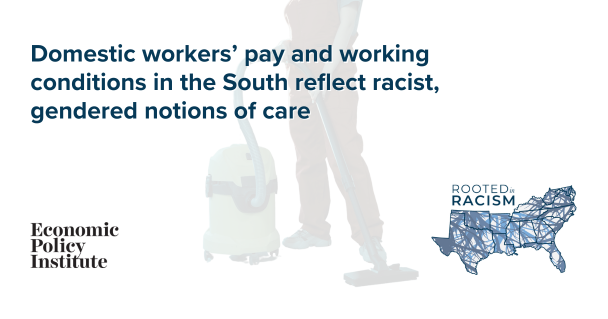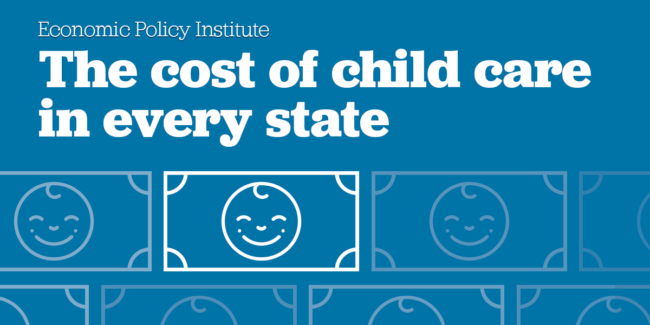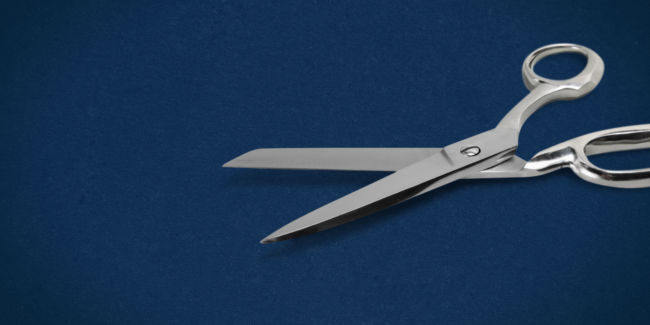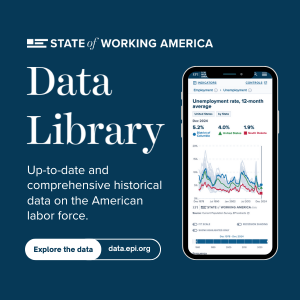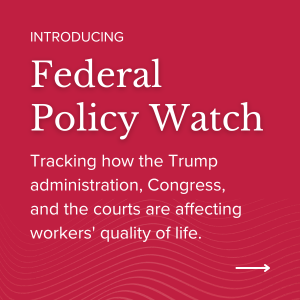This was “a lesson learned painfully during the COVID-19 pandemic when everyone was scrambling to source personal protective equipment (PPE), respirators, and critical medicines unavailable domestically at the necessary scale,” Hersh wrote in an article with Josh Bivens, the chief economist at the Economic Policy Institute. Tariffs, in other words, can help ensure that there isn’t a monopoly over crucial imports so that supply chains aren’t completely disrupted in the event of war or, as we learned in 2020, a pandemic.
Latest Research
-
The ongoing influence of slavery and Jim Crow means high poverty rates and low economic mobility in the South: Rooted in Racism and Economic Exploitation: Part Four
-
Trump executive order to dismantle federal worker unions is an autocratic power grab
-
Strong wage growth for low-wage workers bucks the historic trend
-
The State of Working South Carolina
-
Why is President Trump attacking the Postal Service?: Your questions answered
Blog
-
Cuts to Medicaid will disproportionately hurt people of color and children
-
Federal worker layoffs spike in latest JOLTS report, but it’s just the tip of the iceberg
-
Chester is a prime example of corporations benefiting from public investments in South Carolina at the expense of local communities
-
Workers of color made historic gains over the last five years, but Trump’s anti-worker and anti-equity agenda threatens to reverse this progress
-
The blatant Trump attack on workers you may not have heard about: Cutting the wages of hundreds of thousands of workers
-
The stock market is not the economy, but this time they really are sinking together
-
Equal Pay Day: Gender pay gap hits historic low in 2024—but remains too large
EPI in the news
-
ADP | April 2, 2025
-
Hearst TV | April 2, 2025
-
CBS Moneywatch | April 2, 2025
-
Hearst TV | April 2, 2025
-
VOX | April 2, 2025
-
ADP | April 2, 2025
-
Hearst TV | April 2, 2025
